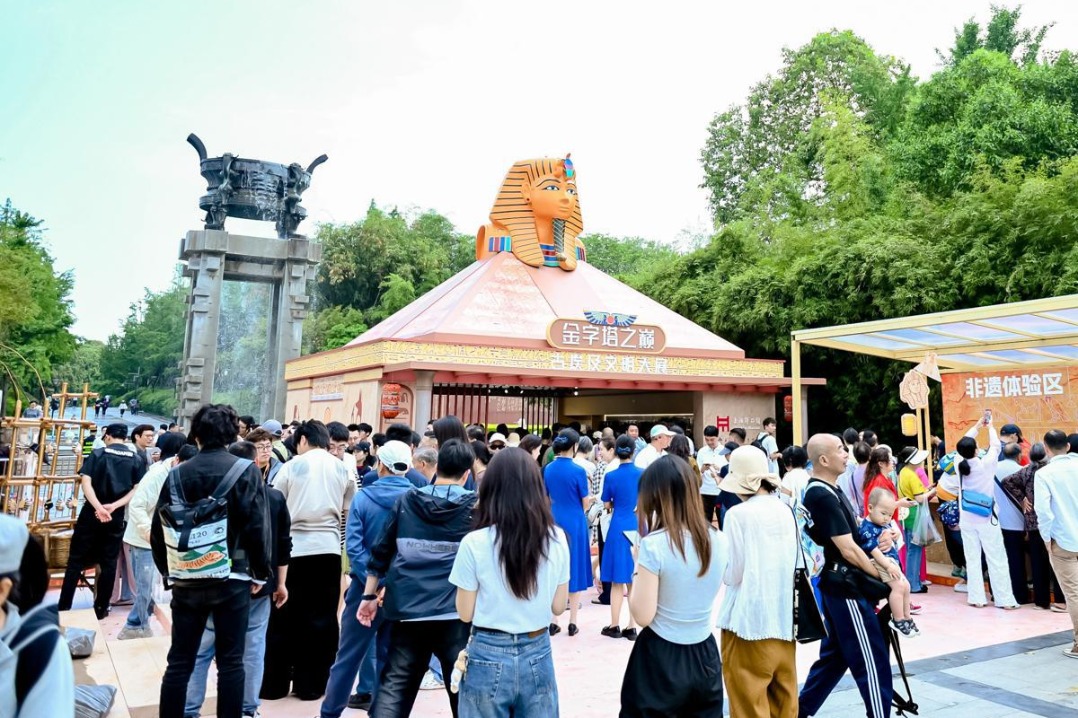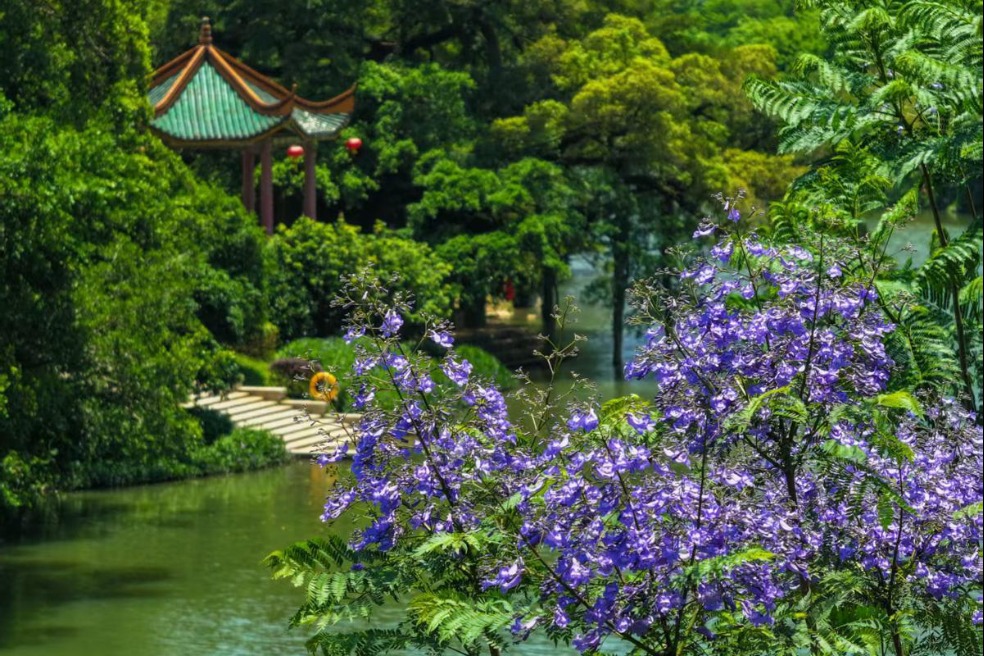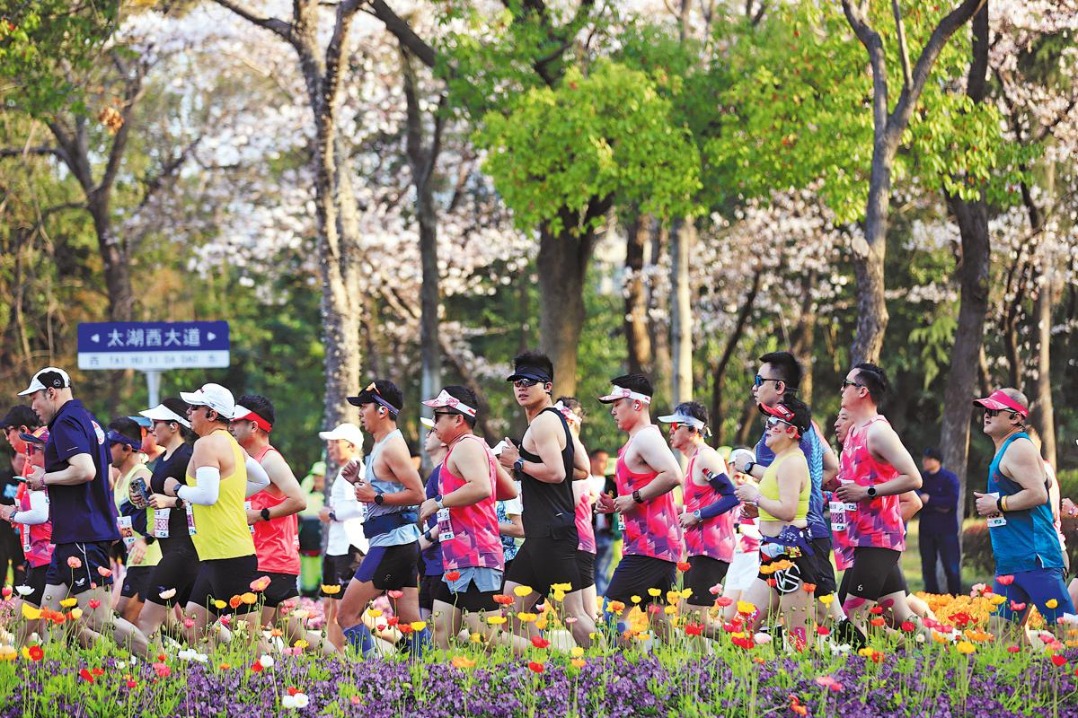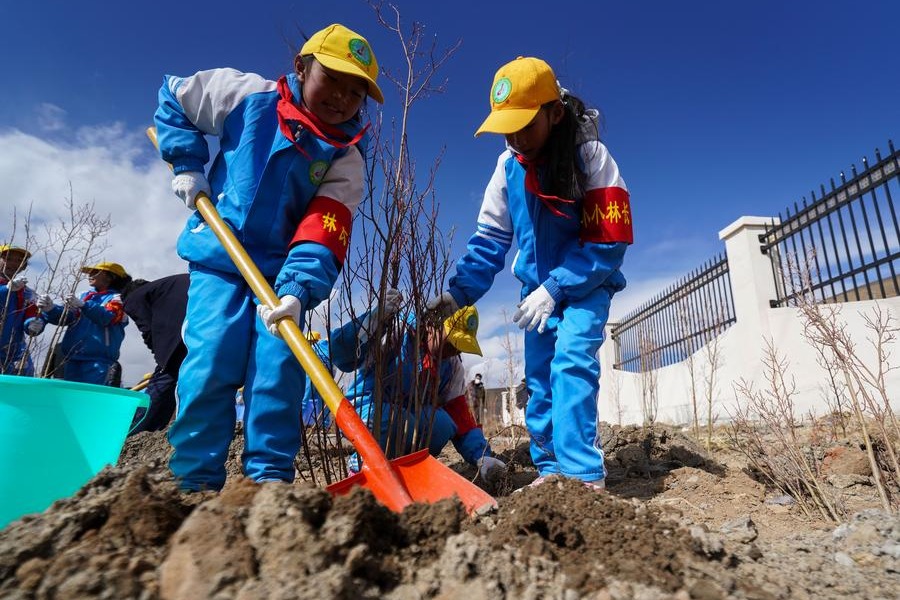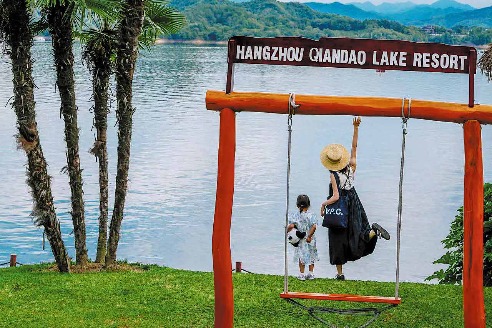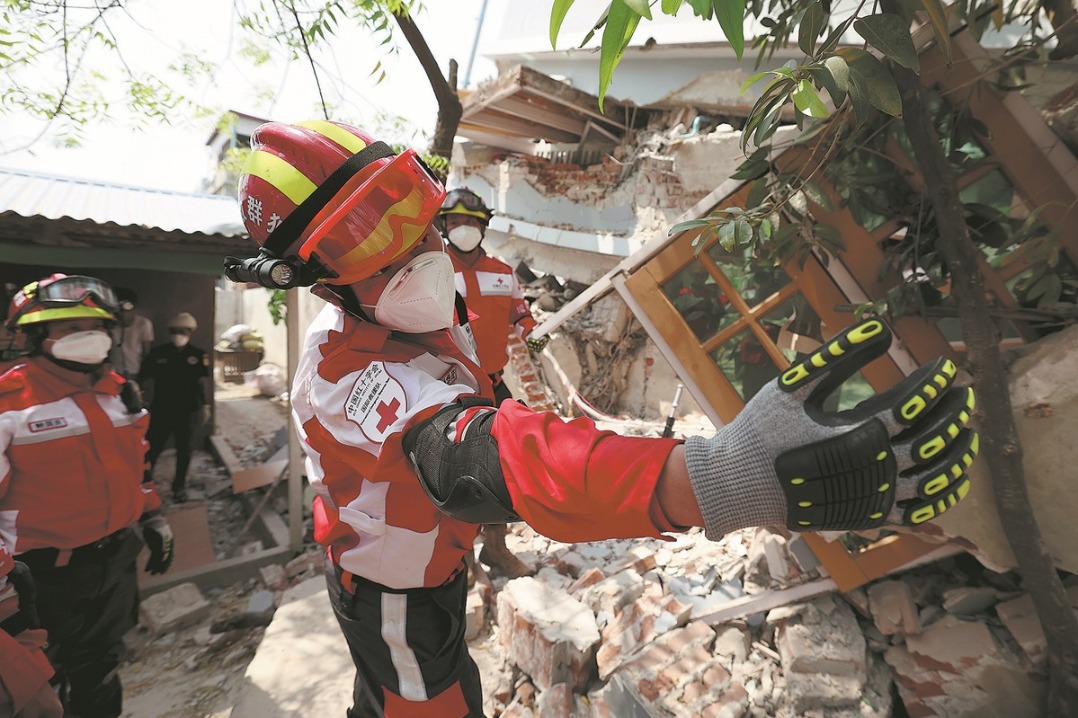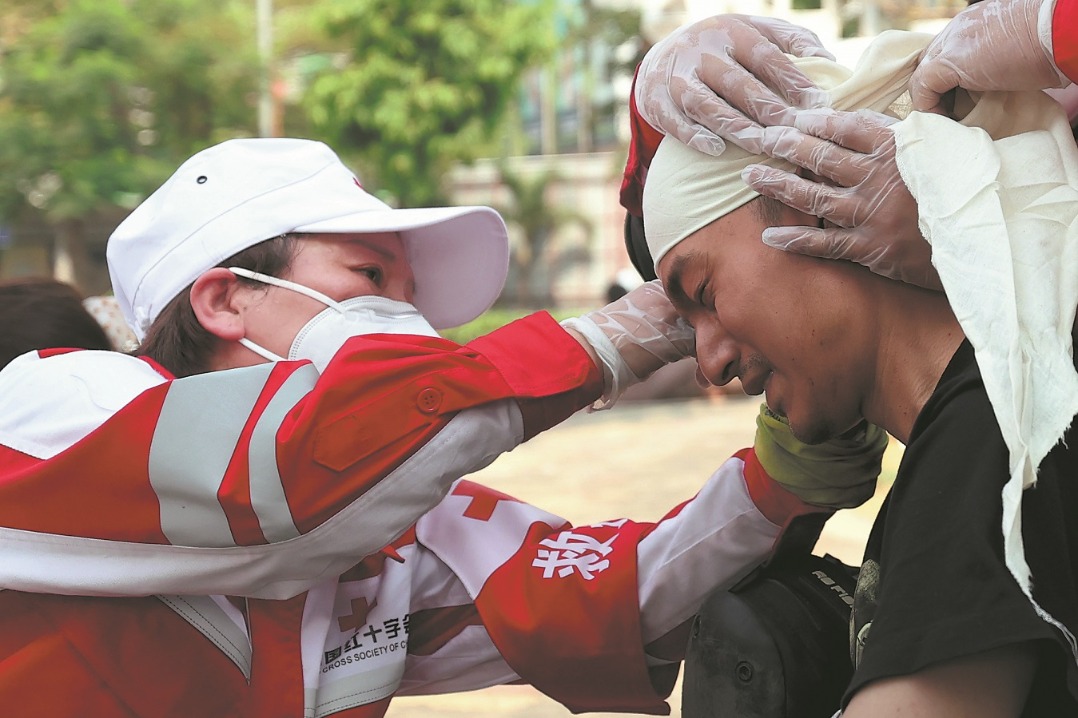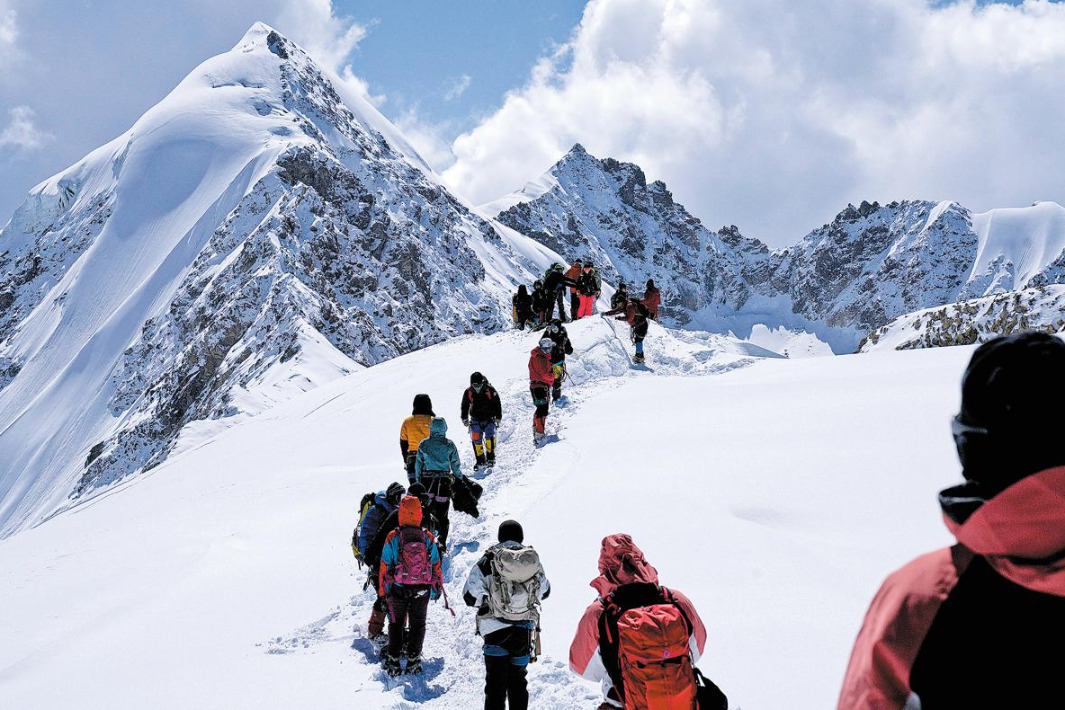Determined climber pushes himself to the limit to achieve peak performance

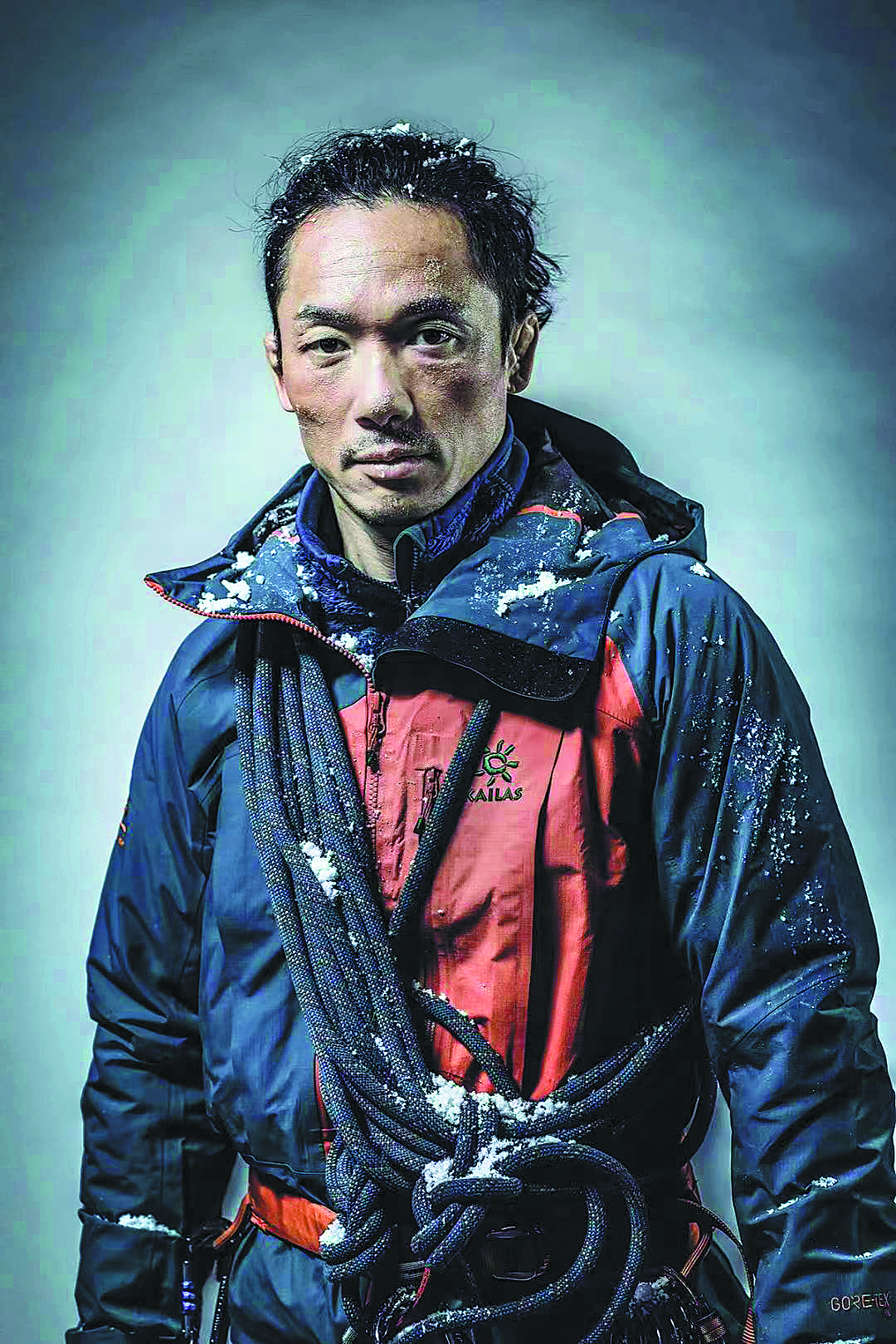
Climbing a mountain is no easy task, especially when it comes to high-altitude peaks. Mountaineers face numerous challenges, including the effects of reduced oxygen levels, falling temperatures and devastating wind chill.
After several attempts, in 2018, Li Zongli, a climber from Chengdu, Sichuan province, reached the summit of Mount Gongga, which was recently measured at 7508.9 meters.
"We climbers do not talk about conquering a mountain, but discuss whether a mountain accepts us climbing it, or not. We do not think about conquering anything, because the only thing we can conquer is ourselves," Li said. "If you are well-trained, you can survive. Otherwise, the mountain will claim you," the 44-year-old added.
Li referred to the demands placed on climbers at higher altitudes, where the air thins and oxygen levels decrease.
For example, at about 6,000 meters, the oxygen content is less than half that at sea level. This makes climbing increasingly difficult and puts a strain on the body, he said.
"The temperature drops significantly as the altitude increases. For every 1,000 meters climbed, the temperature can fall by about 6 C.Mountaineers have to deal with frostbite, frozen equipment, and keeping warm in such harsh conditions," he said.
Despite these difficulties, climbing mountains continues to attract adventurers from around the world, whose passion is fueled by the prospect of pushing themselves to the limit.
In 1957, six members of a Chinese team reached the summit of Mount Gongga. During the descent, four members lost their lives. Since then, no Chinese climbers had reached the summit of Gongga until Li Zongli and his partner Tong Haijun did so in 2018.
Four years earlier, after standing at the foot of the mountain and looking up at the stunning view, Li told his father that he wanted to climb to the top.
He said to his father: "Do you know what it means when I say I want to do this? It may mean that there is a 50 percent chance I won't come back."
His father replied, "If you want to go, then go."
In 2016, Li and his team attempted to climb Mount Gongga for the first time, but at an altitude of about 6,700 meters, strong winds blew their tent several meters away, close to a drop of more than 1,000 meters.
After retreating, Li and his team lost their confidence. "When I felt that our climb was relying more on luck, I decided not to continue it. After making the attempt, I did not want to return at that time," he said.
In 2017, the team tried to find a solution by climbing a peak next to Mount Gongga to test wind conditions.
Li, who studied wrestling at college, began to train for mountain climbing in 2006.
He had already encountered danger by slipping on a 75-degree snow slope and falling more than 600 meters, damaging most of his equipment, bruising his right lung, straining his right knee ligaments, and severely scraping his left arm.
After reaching the summit of Mount Gongga with Tong in 2018, during the descent they lost their way at an altitude of 6,800 meters, and Li experienced temporary blindness. That night, the pair sheltered from a fierce snowstorm behind a large rock.
Their achievement led to them being shortlisted for the Golden Ice Axe Award, known as the "Oscar" of mountain climbing.
Mount Gongga is known as the "King of Sichuan Mountains" due to its towering altitude in the Hengduan Mountain Range and its challenging conditions.
Since a United States expedition team successfully scaled the mountain in 1932, climbers from all over the world have attempted to conquer it every few years. However, due to its changing elevation levels, unpredictable weather conditions, and short climbing periods, the fatality rate for those attempting to reach the summit is extremely high.
For example, in 1981, the mountain claimed the lives of eight Japanese climbers.
Li, who runs an outdoor workshop, has made climbing his career, and is fully supported by his family.
"Humans have a natural curiosity to explore the unknown and push themselves to the limit. Mountaineering is essentially a spiritual activity. The routes we climb and the equipment we use are not important. It is a manifestation of the human spirit that matters," he said.
- Ancient fish fossil find places puzzling species among jawed vertebrates
- China vows to achieve reunification, counter separatism
- China-donated tents seen in relief shelter in Mandalay, Myanmar
- New star orators born as over 1,500 HK students vie for honors
- Seminar urges growth of people's well-being on both sides of Taiwan Strait
- Xi reaffirms China's commitment to friendly cooperation, international equity
















